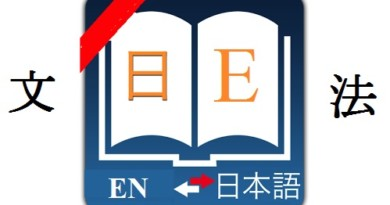Compare つつある tsutsuaru and ている teiru
Xin chào các bạn! Suppose there is a situation like this: You feel like you are slowly forgetting old memories, which expression will you choose to express that idea,(忘れ)つつある or 忘れている? To help you understand the usage of つつある and ている better, in this post, Learn Japanese Daily will introduce to you the lesson: Compare つつある tsutsuaru and ている teiru.

Contents
Compare つつある tsutsuaru and ている teiru
Similarities
Both grammar structures mean “to be doing…”.
Differences
つつある tsutsuaru
つつある is used with Vます(remove ます)
This structure expresses the meaning “to be in the middle of a transformation”. It does not indicate the progress of action.
Example :
父の病気はだんだん治りつつある。
Chichi no byouki ha dandan naori tsutsuaru.
My father’s illness is gradually getting better.
大学生の時の記念は忘れつつある。
Daigakusei no toki no kinen ha wasure tsutsu aru.
I’m forgetting memories of my student days.
祖父は年を取ると、体が弱くなりつつある。
Sofu ha toshi wo toru to, karada ga yowaku nari tsutsu aru.
My grandfather is getting weaker as he gets older.
ている teiru
ている means “The result of the state after an action / event occurs”
When verbs going with ている are verbs indicating the action, this structure expresses the meaning “in the middle of the action/event”.
Example :
日本の生活に慣れています。
Nihon no seikatsu ni narete imasu.
I am used to living in Japan. (The speaker is used to living in Japan – this is the result).
私の国の伝統文化が消えています。
Watashi no kuni no dentou bunka ga kiete imasu.
The traditional culture of my country is disappearing.
A「映画が始まっていますよ。」
B「そうか。」
A : “Eiga ga hajimatte imasu yo.”
B : “Sou ka.”
A : “The movie is starting.”
B : “Really?”
Note : When changing from [Vつつある] to [Vている], the meaning is changed a lot. When changing to「てきている」, the meaning is not changed.
Example :
あの町は都市化しつつある。
Ano machi ha toshika shi tsutsu aru.
This town is urbanizing (The urbanization is happening).
あの町は都市化している。
Ano machi ha toshika shite iru.
That town is urbanized (The urbanization happened – urbanization is the result).
あの町は都市化してきている。
Ano machi ha toshika shitekite iru.
This town is urbanizing (The urbanization is happening).
Compare つつある tsutsuaru and ている teiru
Exercise for consolidating knowledge :
Choose the correct answer
警察は有効的に働いているので、犯罪率は(減りつつある・減っている)。
僕はA町に(住みつつある・住んでいます)が、駅に近いではない。
現代な技術が発展しているので、人間の生活は(変化しつつある・変化している)。
人口の減少は10年前に比べて(変わりつつある・変わっています)。
冬が着て、(寒くなりつつある・寒くなっています)。
環境汚染の問題は(改善しつつある・改善している)と思います。
Ref : tuhoconline
In this post, Learn Japanese Daily has helped you compare つつある tsutsuaru and ている teiru.
See other similar lessons at category: japanese grammar dictionary
